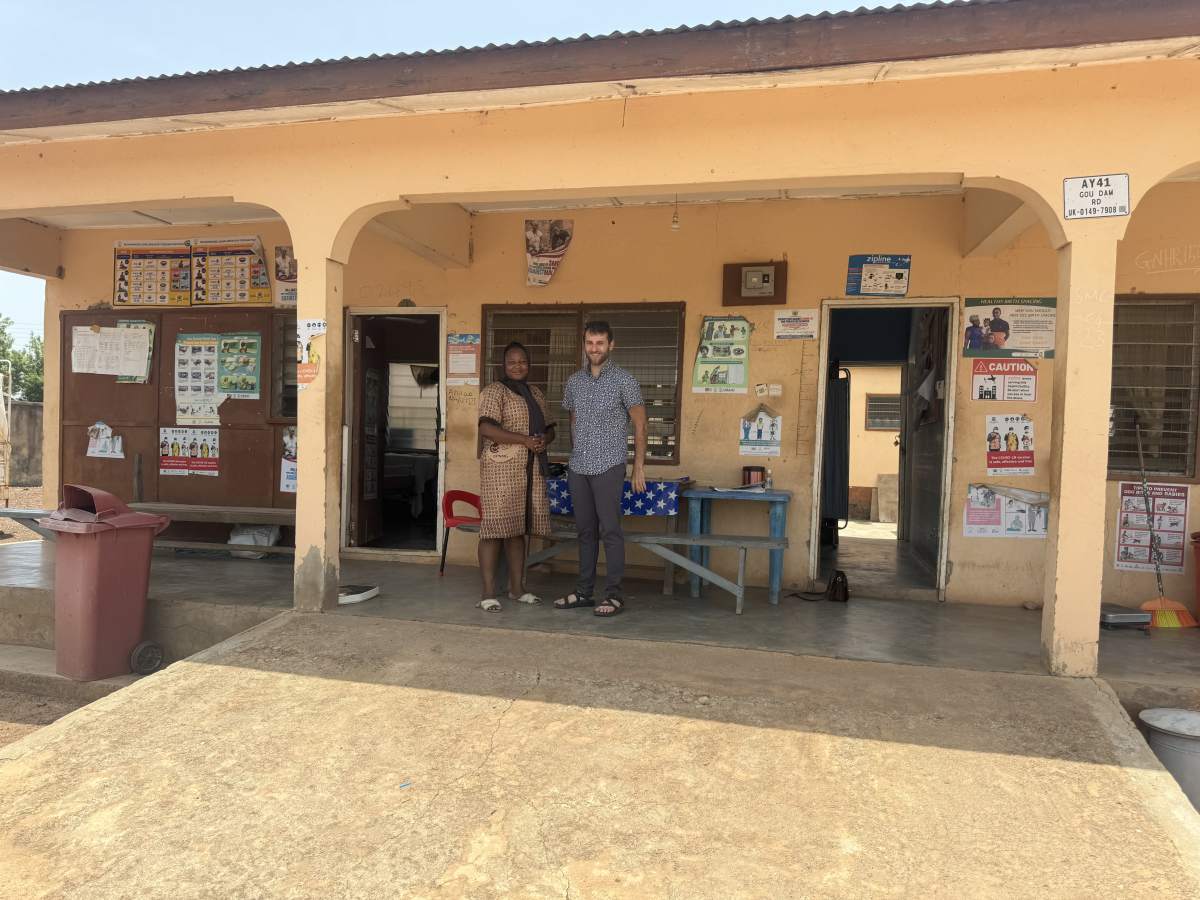My trip has multiple objectives listed below:
- Assisting in research about hypertension and major depression care in a rural primary care system in Northern Ghana. I will collect data, meet with stakeholders, and train community health workers on providing lifestyle counseling to address both of these chronic conditions.
- Observing clinical care in a universal healthcare system in Ghana and contrast it with healthcare as provided in the United States’ public-private system
- Meet with local community stakeholders as a step towards formalized partnerships with my home institution
In terms of impact, I hope that much of my work in formalizing partnerships will result in a longitudinal relationship with my institution, ultimately benefitting the rural Ghanaian communities to which I am traveling. Ideally, my work will help improve primary care for the local communities. While I am not providing direct clinical care, I hope that the relationship that results from my work will benefit the local community for many more years to come, outlasting the time I am there.
The local population of people living in Navrongo, the local district in the north of Ghana, will benefit from my project. Specifically, we are rolling out research seeing if we can utilize non-physician staff to control hypertension and depression, two of the most common chronic conditions in the community. These diseases were selected by the local community for this research project’s focus, highlighting the relationship with the community we are trying to grow. They were selected due to the fact that they are some of the most burdensome conditions in this area and the community would like to develop more interventions and resources to address them.
Ideally, the entire local Navrongo community will benefit from better controlled hypertension and depression, resulting in lower rates of cardiovascular complications and suicidality. We plan to use community volunteers and nurses to meet most of the need, alleviating the burden on a strained physician workforce and expand access for rural Ghanaians. We have adapted a World Health Organization protocol, called the HEARTS program, to address and control hypertension and have created a similar program to address major depression.
Additionally, the Navrongo area serves as an innovation lab for the Ministry of Health of Ghana. This means that interventions are often tested in this area before being scaled up country-wide. We hope that the success of our project will result in such scale-up, benefiting Ghanaians across the country.
I am most excited about the sustainability of my trip. I believe that meeting with many stakeholders on behalf of Mount Sinai Sinai and starting the conversation to generate formalized partnerships will outlast my time there. In the immediate, my goal is to train more staff to implement our intervention. Over the long term, I hope that the impact of this project will be lower rates of uncontrolled hypertension and lower rates of cardiovascular mortality, a leading killer in this area. Further, I hope that we will show that a similar intervention can be used to control depression as well as other chronic diseases, resulting in protocolized, scalable solutions to rural primary care and chronic disease management.
As mentioned, I will be meeting with local officials from the government, as well as physician leaders and academic institutions to generate comprehensive partnerships between Mount Sinai and these stakeholders.
Personally, I hope to learn about working in low-resource settings to translate back to my clinical practice in the US within resource-constrained areas.






I had a double component to my trip: research as well as clinical experience. I was able to most directly impact the clinical staff of War Memorial Hospital in Navrongo. I taught clinical pediatric nursing staff basic life support refresher skills and also taught them about clinical topics relevant to pediatrics, such as febrile convulsions and brief, resolved, unexplained events. I also taught adult nursing staff about diabetes and inpatient diabetes management to improve their reasoning skills for patients who get admitted for this common condition. I rounded with clinical staff during morning rounds in the hospital on the medical and pediatric wards, discussing interesting cases and exchanging ideas on management for complicated patients.
I also conducted research building curricula to teach community volunteers counseling skills as part of a research project to address chronic diseases in the community through lifestyle counseling. Ultimately, this project is meant to improve local primary care systems to impact the greater community in this rural region.